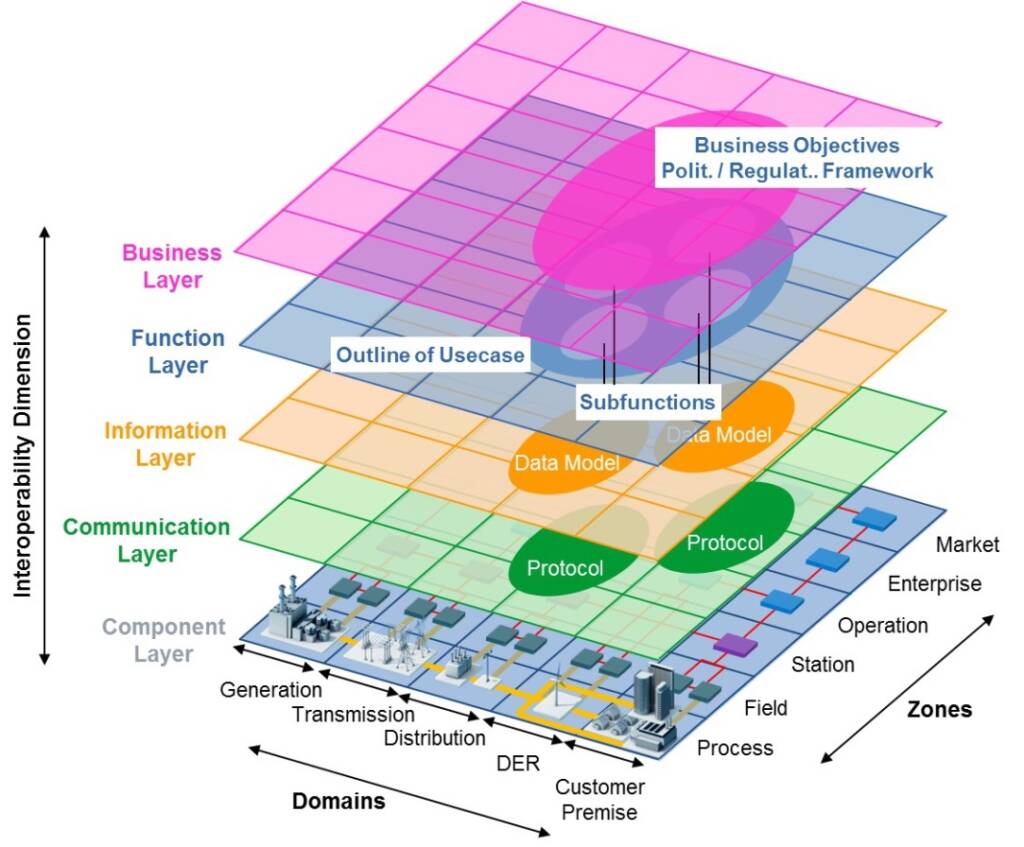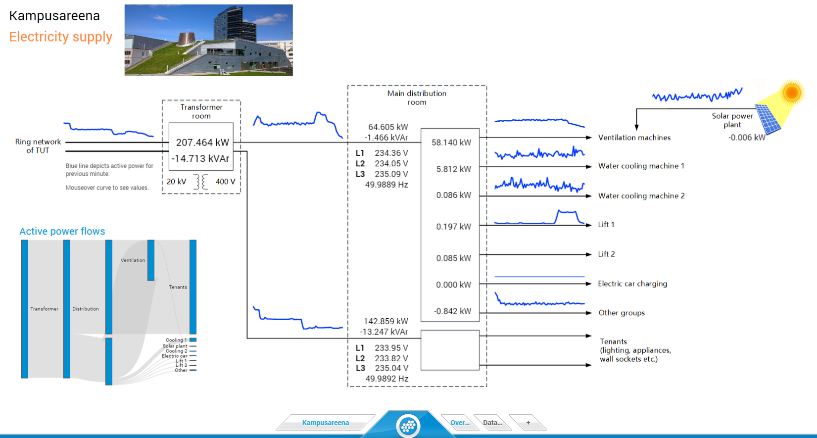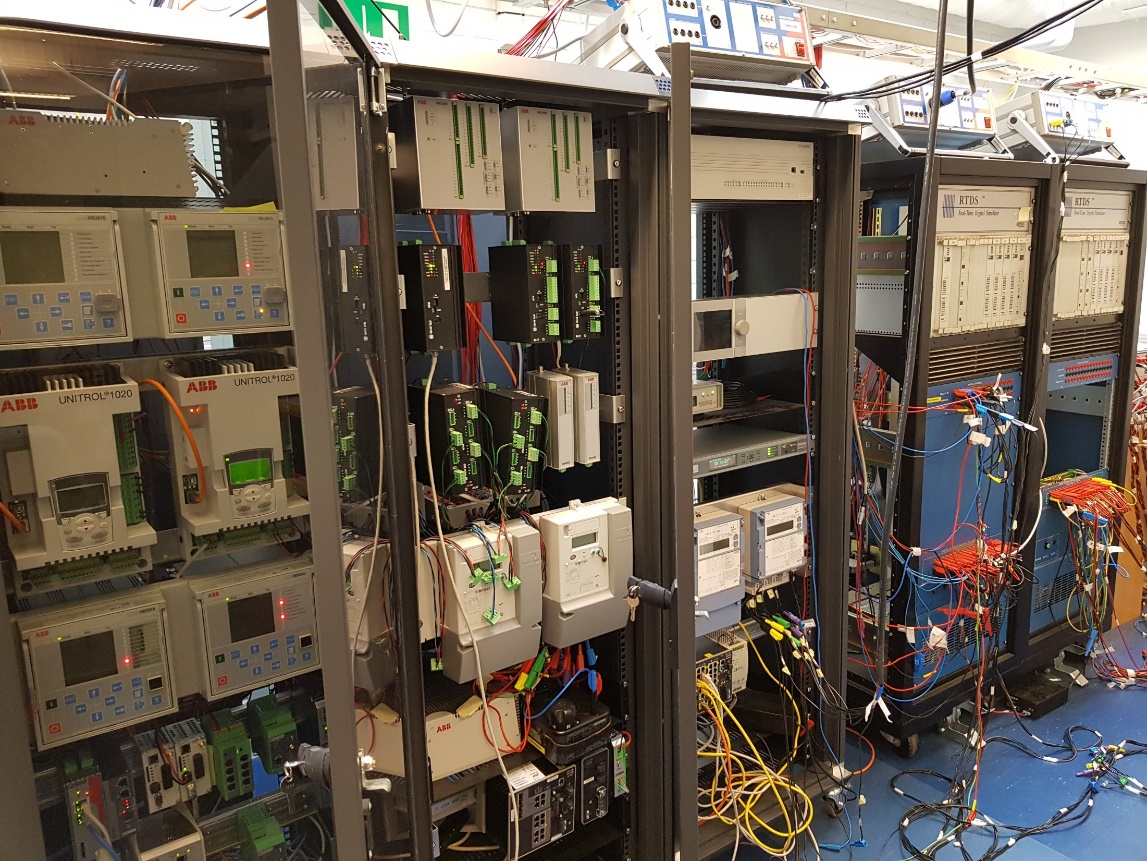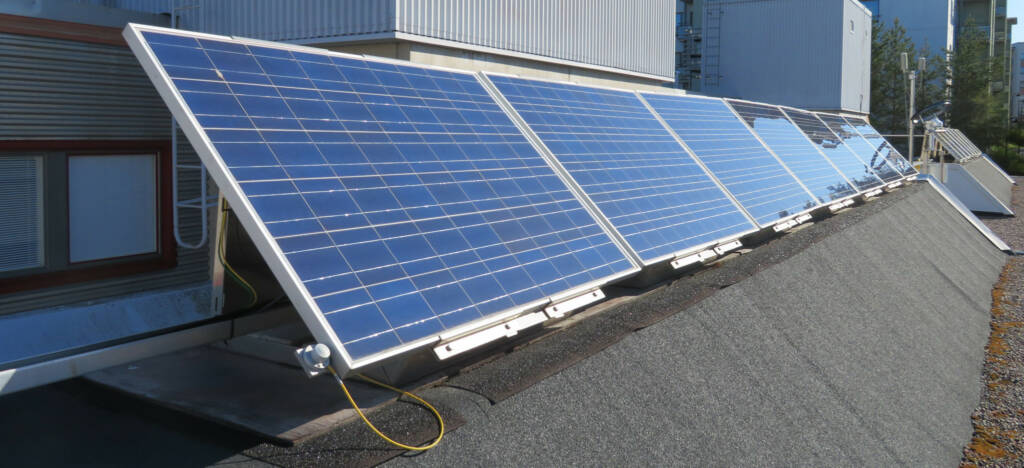Research is linked to the progress of Smart Grids, which are under active research and development worldwide. One essential objective of Smart Grids is to support and enable the mitigation of climate change. The main goals of Smart Grids is to enable energy- and resource-efficient and sustainable electric energy system and the market by integrating distributed intermittent renewable electric energy generation, energy storages, electric vehicles, demand response and sector-coupling (e.g. district heating, electrified logistics and hydrogen economy) into the entire electricity system, and to function securely as one of the society’s most critical infrastructures.
Research activities cover technical, economic, legislative, market design issues related to the production, grids and use of electricity. The most significant changes in the domain are the transition to wind and solar power generation, need for novel flexibility (e.g. energy storages and demand response) for multiple purposes, and direct and indirect electrification of transportation, industrial processes and heating sector.

The aim is to conduct internationally recognized scientific research that also has significant societal impact. The research is conducted in collaboration with various stakeholders and companies. The research results and new knowledge enable the development of the (national) energy system and development of new products and the competitiveness of companies operating in global market. We actively cooperate with national and international partners including universities, other research organizations and companies.
Our research activities cover topics of:
- renewable electricity generation, especially photovoltaic (PV) power systems
- spatio-temporal smoothing of large-scale PV power and it’s enhancement for system balancing and frequency control
- optimal operation of PV systems under changing operating conditions
- condition monitoring and diagnostics of PV systems
- sizing and control of energy storage systems used with PV and wind power systems
- power system design
- integration of distributed energy resources (DERs) and their functionalities as a part of grid planning to increase hosting capacity and quality of supply
- enhancement of distribution grid reliability with grid automation and DERs
- design of energy supply and infrastructures for various kind of electric vehicles for road transportation and electrified non-road mobile working machines
- design of future energy system infrastructures for hydrogen economy
- grid protection, monitoring and control solutions
- communication based protection
- condition monitoring
- active network management, utilization of DERs and edge-cloud computing to enhance distribution grid operation (e.g. island operation, advanced voltage and frequency control, congestion management)
- power quality and disturbances/outage management

- prosumer, energy community and microgrid aspects to optimize energy investments and operational costs
- case studies and demonstrations of energy communities are ongoing for households, apartment buildings, EV charging sites, fleet of electrified non-road mobile working machines and several industrial processes
- how much and where the flexibility should be invested to minimize the total costs of energy use and to utilize more renewable energy, and the role of energy storages and demand response for that
- how to operate flexible assets most efficiently for combined utilization of internal needs and opportunities at the markets
- how to find out the flexibility capacity of energy resources constrained by user requirements and the physical process itself
- electricity market and grid regulation
- determination of cost-caution based network tariffs, new tariff structures (e.g. novel power-based network tariff) and tariffs for new customer groups like EV charging and energy communities
- regulation of network business and novel business models
- electricity market models
- design of local flexibility market to be used in collaboration with TSO and DSO
- price sensitivity of large-scale integration of solar power
- value of flexible electrolysis to benefit on electricity market and to balance power system
Research activities are supported by advanced research laboratories and equipment including e.g. modern Real Time Digital Simulator (RTDS) and microgrid laboratory, and versatile simulation softwares. The photovoltaic solar power research plant has been in operation since 2011, comprising a comprehensive weather measurement system together with advanced electrical measurements.
The research groups are led by professors Pertti Järventausta, Sami Repo, Pekka Verho and Kari Lappalainen. The research collaboration is active with research groups in power electronics, computer sciences (software systems), automation technology and mechanical engineering, industrial and information management, and energy politics through the CNESS research platform of Tampere University in building automation in TAMK, and with VTT as part of the Smart Energy Systems Competence Center (SENECC).






